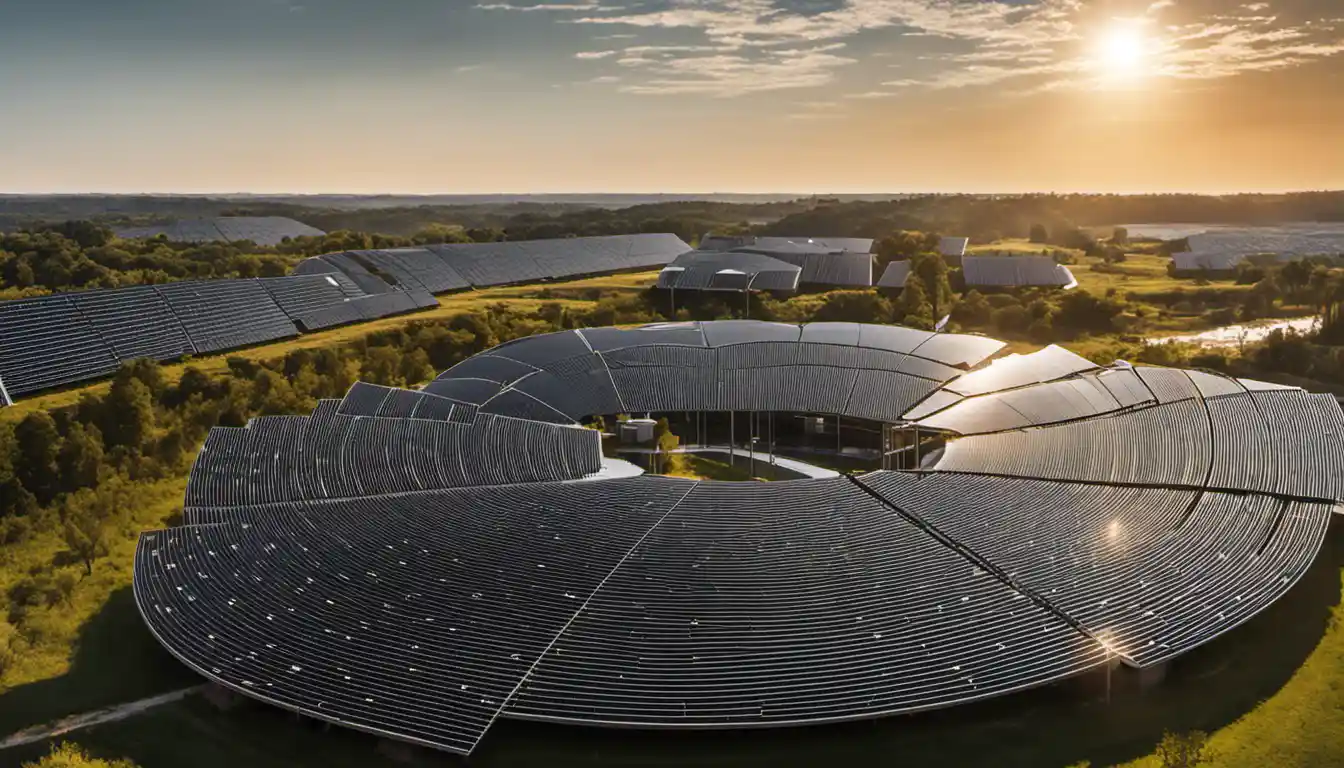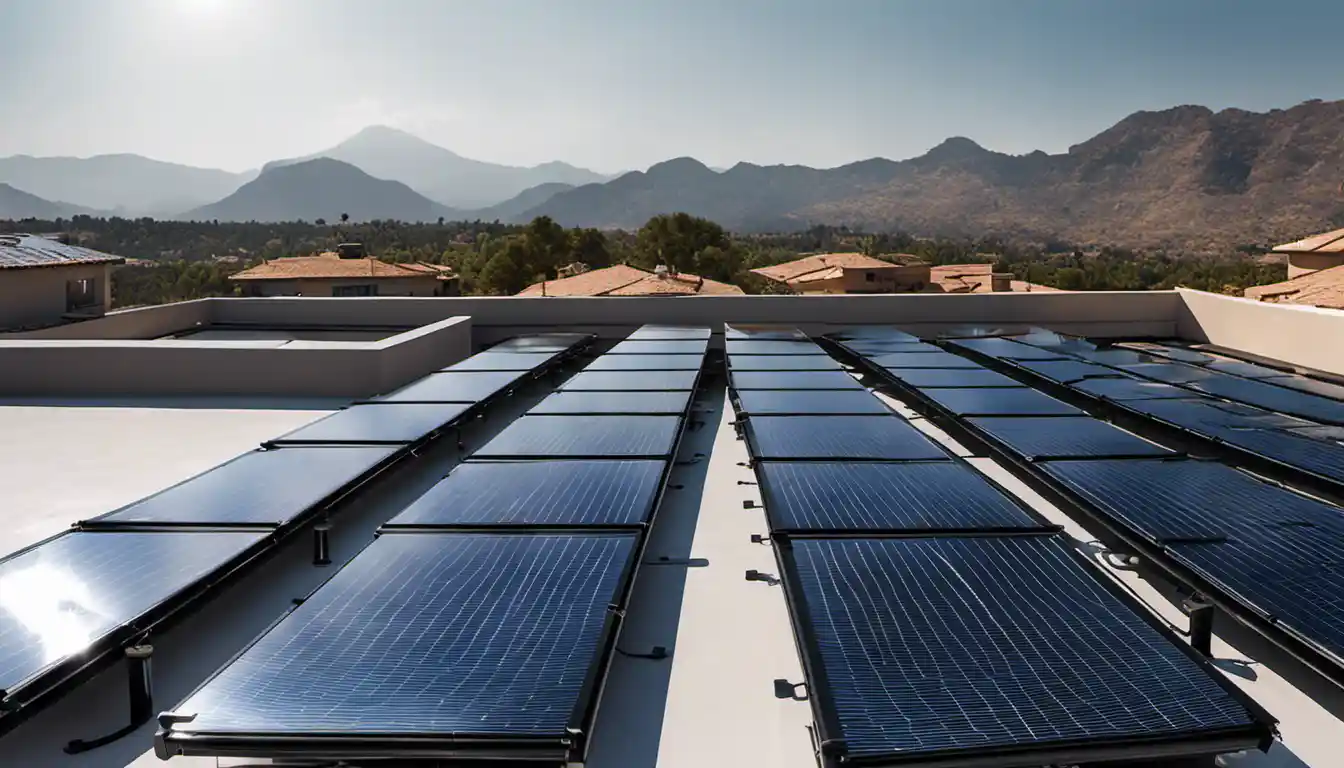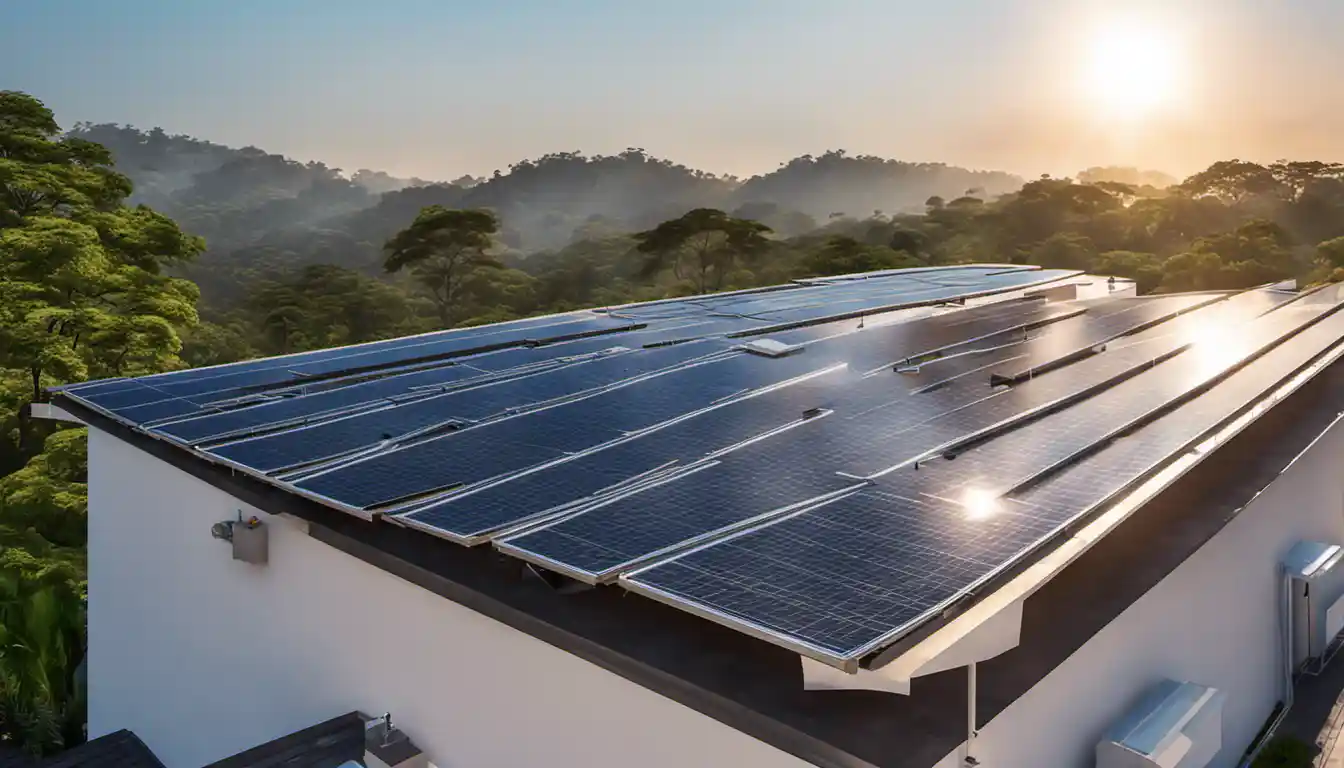Understanding Solar Water Heaters
No, a solar water heater does not generally need electricity to function. It uses solar energy to heat the water, which is an entirely natural and renewable power source. However, some models might use a small amount of electricity for system controls and pumps.
Given the growing concerns about energy conservation and reducing our carbon footprint, solar water heaters have emerged as a significant player in the green energy landscape. They epitomize innovation and environment-friendliness. But what exactly is their concept?
The Concept behind Solar Water Heaters
Solar water heaters use heat from the sun—possibly the most abundant source of energy available to us—to warm the water. They come equipped with solar collectors installed on the roof and are directly heated by sunlight. This concept of leveraging solar energy is not only extremely efficient but also cost-effective in the long run, but more on that later.
Different Types of Solar Water Heaters
Just as all homes are not created equal, solar water heaters come in different variants to suit diverse needs.
Active Solar Water Heaters
Active solar water heaters use movable parts such as circulating pumps and controllers. Two essential configurations are found in active systems: direct and indirect circulation systems. While the direct type circulates water through solar collectors and into the home, indirect systems use a non-freezing heat-transfer fluid.
Passive Solar Water Heaters
Passive water heaters, on the other hand, don’t rely on pumping or control mechanisms. They use natural convection instead. Integral collector-storage passive systems and thermosyphon systems are the two main types under this category.
Key Components of Solar Water Heaters

Now, let’s talk about the stars of the show: the solar collectors and storage tanks. These two components form the crux of the system.
Role of Solar Collectors
Solar collectors serve to capture the sun’s heat energy and transfer it to the water. They typically consist of an insulated box with a glass cover and a dark-colored solar absorber plate. It’s simple, but an ingenious design that efficiently traps sunlight for heating purposes.
Importance of Storage Tanks
The storage tanks in solar heaters are akin to batteries in solar PV systems. They store the surplus heated water for later use, ensuring you can get a warm shower even after sundown.
Solar Water Heaters and Electricity
Let’s circle back to our initial question: does solar water heater need electricity?
How Solar Water Heaters Function without the Need for Electricity
A typical solar water heater operates during daylight hours, harnessing the sun’s heat to warm water. It doesn’t need an external power source, making it an off-grid solution. This efficiency is what distinguishes solar water heaters from traditional ones.
Is there any Circumstance where Solar Water Heaters may require Electricity?
Well, the answer is both yes and no. Certain models of active solar water heaters might use some electricity for the operation of controllers and pumps. In the case of passive models, however, the operation is entirely electricity-free. Now, you might ask, “does solar water heater use electricity at all then?” Fundamentally, your dependence on traditional power can be negligible with a well-maintained solar water heater.
Want more insights on how these systems function? Visit our detailed guide on how solar water heaters work and educate yourself further on this revolutionary technology.
The Efficiency and Cost-effectiveness of Solar Water Heaters

Solar water heaters, apart from being eco-friendly, are also highly efficient when it comes to energy usage and cost-effectiveness.
Purchasing and Installation Cost
Although the initial expenditure (including installation) may be higher compared to conventional water heaters, solar models recoup the investment over time through sustained savings on energy bills.
Tax Credits and Incentives for Solar Water Heating Systems
Many countries offer generous tax credits and incentives for the installation of solar energy products, including solar water heaters. This additional perk can significantly lower your initial investment.
Solar Water Heaters vs Traditional Water Heaters
Now that we understand how solar water heaters work, let’s conduct a quick comparative analysis with their traditional counterparts, mainly in terms of energy consumption.
Comparative Analysis in Terms of Energy Consumption
A conventional water heater uses electricity or gas to heat water, contributing to energy wastage and higher utility bills. On the contrary, a solar water heater uses solar energy—a free and abundant power source—which ultimately leads to significant cost and energy savings.
Pros and Cons of Solar Water Heaters

Like any technology, solar water heaters come with their set of advantages and potential downsides. The pros include lower energy bills, decreased dependence on fossil fuels, and eligibility for tax credits. The cons might range from initial costs to the requirement of a suitably sunny area for installation.
Addressing Common Queries about Solar Water Heaters
Finally, let’s turn our attention to some frequently asked questions about solar water heaters.
Are Solar Water Heaters worth the Investment?
While the upfront costs might seem high, the long-term returns, both economic and environmental, are well worth the initial investment, especially if you reside in sun-belt regions.
What are the Potential Drawbacks of Solar Water Heaters?
The main potential drawbacks could include the initial cost, dependency on sun exposure, and space requirement for installation of solar collectors.
Does Cold Weather impact the Efficiency of Solar Water Heaters?
Extreme cold weather can affect the efficiency, but newer models come equipped with freeze protection and are quite efficient even during colder months.
How many Solar Panels are required for an Efficient Water Heating System?
The number of panels depends on various factors such as the size of the household, daily hot water consumption, and geographical location. A solar energy expert can assess your needs and suggest the most efficient system.
To wrap up, solar water heaters can be an excellent addition to your home, given their environmental and economic benefits. Not only do they significantly answer the question, “Does solar water heater need electricity?”, but they also brilliantly illustrate how we can rely on natural resources for our daily needs. I hope you found this comprehensive guide useful!



